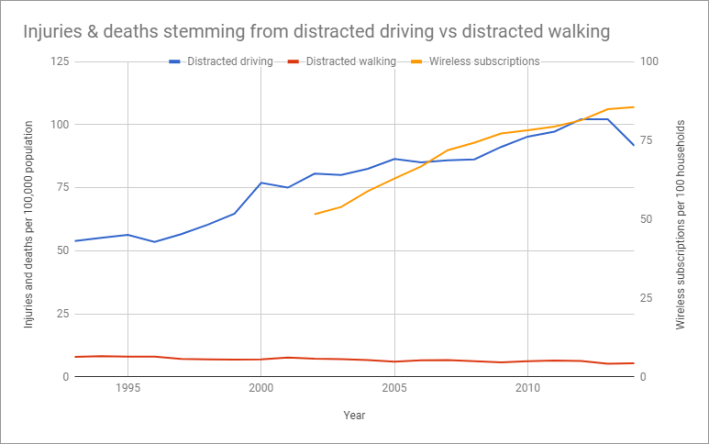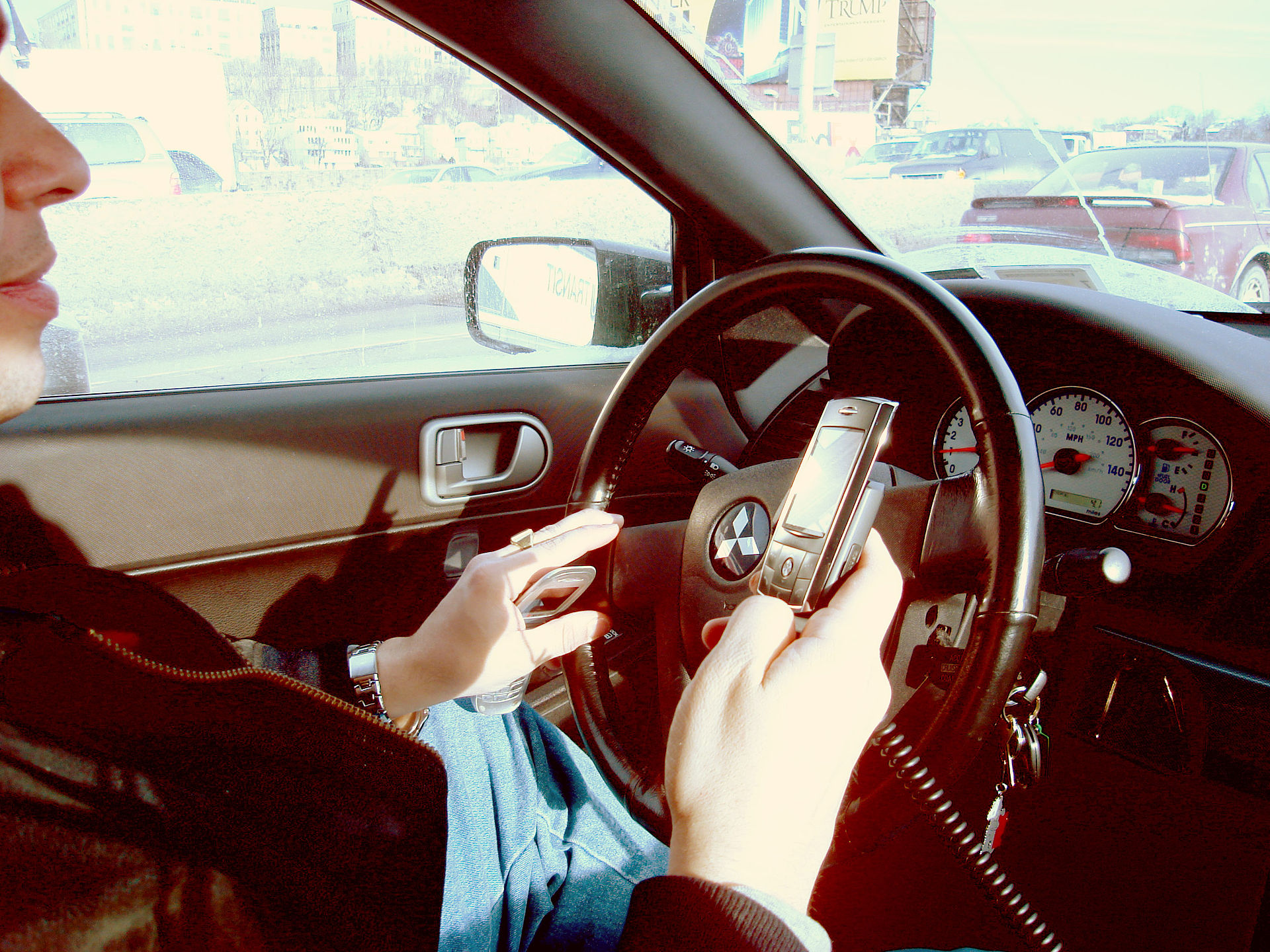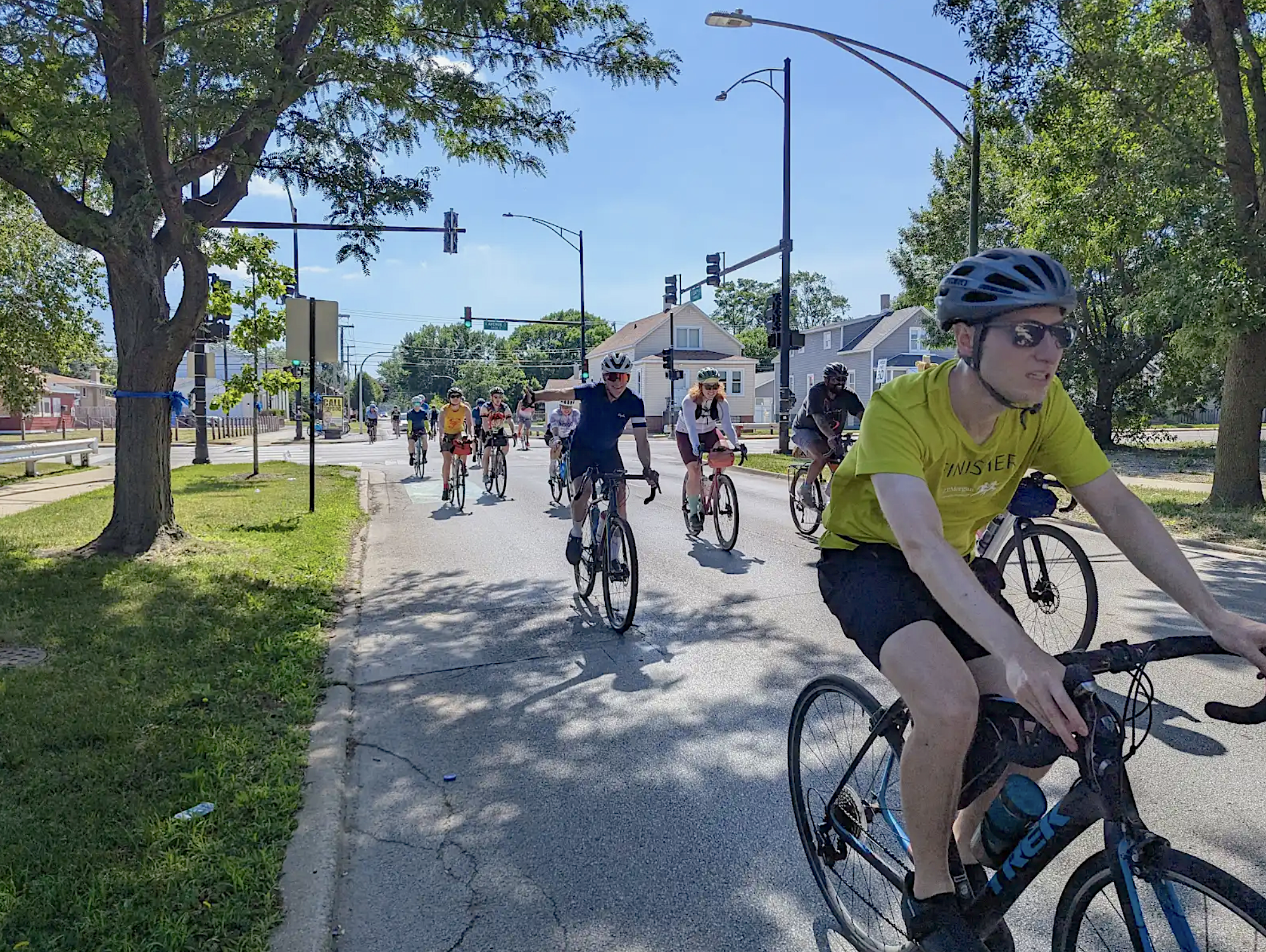After Honolulu made it illegal to look at your smartphone while walking across a street, politicians around the country have been floating similar proposals, and last week Chicago aldermen got in on the act. Southwest Side alderman Ed Burke and Far South Side alderman Anthony Beale proposed an ordinance that would fine pedestrians $90 for “distracted walking,” with a $500 fee for repeat offenders, the Sun-Times reported.
“No person shall cross a street or highway while using a mobile electronic device in a manner that averts their visual attention to that device or that device’s activity,” the ordinance states.
Notably, both politicians have been outspoken advocates for the taxi industry, whose drivers were involved in 28 percent of downtown pedestrian crashes, according to a 2011 Chicago Department of Transportation study.
“The goal … is to reduce pedestrian deaths and injuries, especially at crosswalks,” Burke stated in a press release. Beale added that the new law would “increase safety by eliminating distractions for pedestrians at intersections and elsewhere” across the city.
Pedestrian deaths and injuries are obviously a major issue in our city – drivers had fatally struck 39 people on foot in Chicago as of October 31, according to preliminary police data, a significant increase from the year-to-date average of 31.8 deaths from 2011-2015. But as Streetsblog USA recently noted, data shows that victim-blaming crackdowns on pedestrians are the wrong way to address the problem.
After an Ontario politician proposed a law named “Phones Down, Heads Up,” Mike Boos of from the Waterloo-based Tri-Cities Transport Action Group analyzed data from the Ontario Ministry of Transportation. Boos found that there had been a steep increase in the number of injury crashes caused by distracted driving in recent years, which coincides with an increase in mobile device use, but distracted walking wasn’t a significant or growing factor in collisions.

Meanwhile, a May 2017 Chicago Tribune report found that citations for distracted driving in our city had plummeted over the last three years, with police virtually abandoning efforts to enforce that ordinance. 45,594 citations were written in 2014, 25,884 were issued in 2015, and a mere 186 were issued in 2014.
The good news is that Burke and Beale’s proposal has been widely ridiculed, with downtown alderman Brendan Reilly leading the charge. “I personally have landed on the hood of a taxicab in a mid-block intersection,” he told the Sun-Times. “And frankly, it’s the drivers who aren’t paying attention more often than the pedestrians.”
At last week's Mayor's Pedestrian Advisory Council, Chicago Department of Transportation deputy commissioner Luann Hamilton said the aldermen did not consult CDOT before proposing the ordinance. She added that there is no data linking a rise in the number of pedestrian deaths with distracted walking.
“Fining people who are legally crossing in the crosswalk [under current laws] – no matter what they’re doing - is misdiagnosing the problem, said Kyle Whitehead from the Active Transportation Alliance. Essentially, he noted, the new ordinance puts the onus on pedestrians to dodge drivers who are breaking the law by failing to respect crosswalks. Whitehead added that to reduce traffic fatalities, the most effective steps the city can take are to redesign roadways to discourage speeding and create additional protection for cyclists and pedestrians, as well as to increase the number of people walking, biking, and using transit so that there are fewer cars on the streets.
But it’s not just “Stop for Pedestrians”-sign-hugging progressives who have come out against Burke and Beale’s bill. Even the right-wing Illinois Policy Institute has slammed the proposal, albeit from a fiscal conservatism perspective. “While there’s little real proof the ordinance would save pedestrian lives, it’s certain that public officials would enjoy the fruits of additional revenues from taxpayers’ already strained wallets,” wrote Vincent Caruso in a recent blog post on the think tank’s website.





